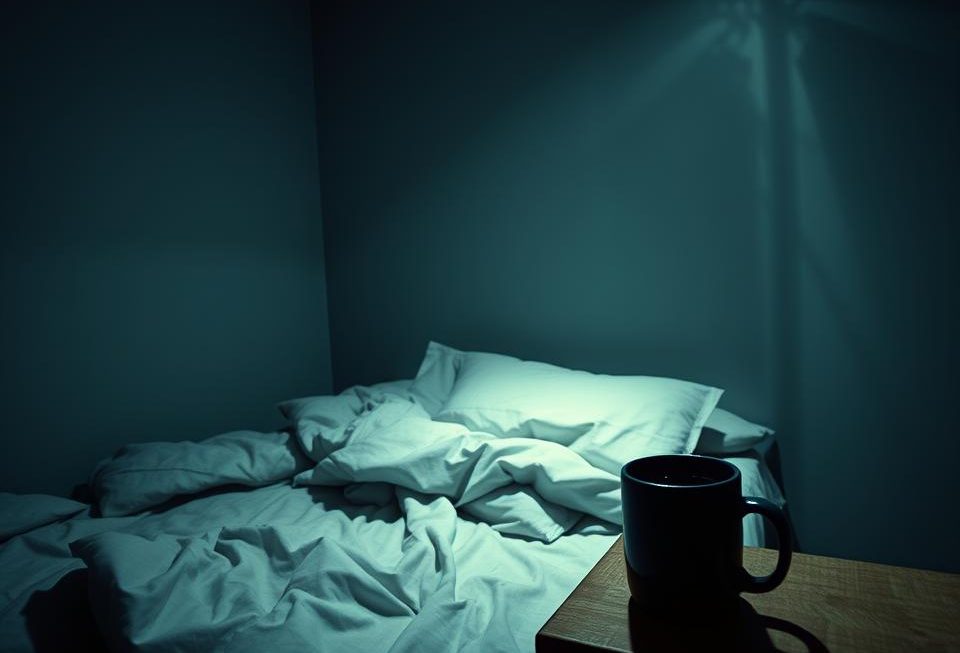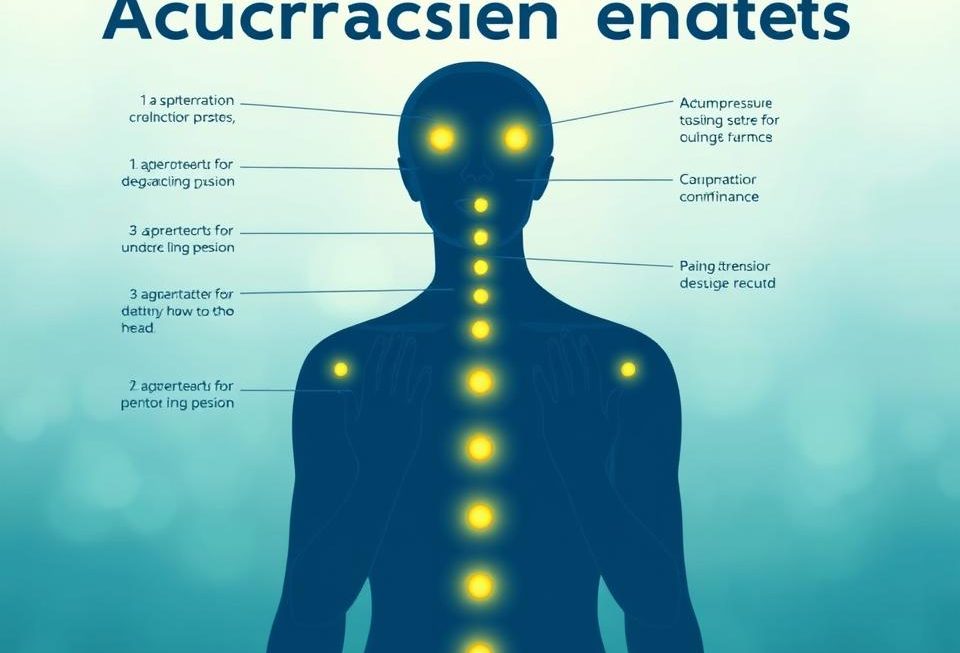In today’s fast-paced world, it’s easy to overlook the importance of rest and relaxation. But, your health and well-being should be your top priority. This article will show how rest is key for keeping your physical and mental health in check. It will also give you tips on adding restorative practices to your daily life.
Getting enough sleep and rest is crucial for your body and mind to work well. When you make rest a priority, you’re not just helping your physical well-being. You’re also supporting your mental health and improving your life quality. By using mindfulness techniques and stress management, you can make a self-care routine that gives you the balance and rest you need.
If you’re dealing with sleep deprivation, feeling swamped by your work-life balance, or just want a healthier lifestyle habit, this article has what you need. It offers tools and insights to help you put rest first and enjoy the perks of renewed energy and improved well-being.
Read more interesting information at ::sportsnews1
The Importance of Rest for Optimal Health
Getting enough rest and sleep is key for our mental and physical health. The mind and body work together closely. If we ignore rest, it can harm us a lot. It’s important to understand this link to take care of our bodies and minds.
Understanding the Mind-Body Connection
How we sleep affects our mental and physical health. Sleep deprivation can make us less sharp, forgetful, and moody. On the other hand, good sleep and rest bring many benefits for our health and happiness.
The Consequences of Sleep Deprivation
Not sleeping enough can lead to big problems. Chronic sleep deprivation increases the risk of:
- Weakened immune system
- Cardiovascular problems
- Hormonal imbalances
- Cognitive impairment
- Emotional and behavioral issues
Knowing how crucial rest is, we can fight sleep deprivation to protect our health. The mind and body are closely linked. Taking care of our sleep is a key part of staying healthy and mentally well.
“Sleep is the golden chain that ties health and our bodies together.”
– Thomas Dekker
Developing a Restorative Sleep Routine
Creating a consistent sleep routine is key for good sleep. It helps your body and mind relax. By doing calming things before bed, you can improve your sleep hygiene. This makes your sleep environment better for rest.
Creating a Relaxing Sleep Environment
For a good night’s sleep, make your bedroom relaxing and comfy. Keep it cool, dark, and quiet to help you sleep better. You might want to use blackout curtains, earplugs, or a white noise machine to block out noise.
- Keep your bedroom temperature between 65-70°F (18-21°C) for optimal comfort
- Minimize exposure to blue light from electronic devices before bedtime
- Introduce calming scents, such as lavender, to your space
Also, make your bed a cozy spot with soft sheets, a good mattress, and warm blankets. These changes can help you fall asleep and stay asleep better.
“The quality of your sleep has a profound impact on your overall health and well-being. By prioritizing a restorative sleep routine and sleep environment, you’re investing in your long-term vitality.”
Incorporating Mindfulness Techniques
Mindfulness practices can change how you feel, helping you relax and improve your well-being. By adding these techniques to your daily life, you can feel more present, less stressed, and clearer in your thoughts.
Meditation is a key mindfulness practice. It involves paying attention to the now without judgment. This can calm your mind, reduce anxiety, and bring deep relaxation. Even a few minutes of meditation each day can greatly benefit your mental health.
Deep breathing is another great technique. It engages the part of your body that helps you relax. This can lower your blood pressure, slow your heart rate, and make you feel calm.
- Try different mindfulness practices to see what works for you, like body scans, mantras, or mindful walking.
- Add mindfulness to your daily life, whether it’s during your morning coffee, a work break, or before bed.
- Be gentle with yourself as you try these techniques; the benefits of mindfulness take time to show.
Adding mindfulness to your life can lead to more relaxation, better mental health, and overall well-being. Start this journey and see how mindfulness techniques can help with stress management and give you the rest you need.
“Mindfulness is not about changing your life, but about living your life change-fully.”
Stress Management for Better Rest
Stress can make it hard to sleep well. But, by finding and fixing the stress sources, we can make our minds and bodies more relaxed. Let’s look at ways to manage stress for better sleep and mental health.
Identifying Stress Triggers
First, we need to know what stresses us out. Think about what situations or people make you anxious. Knowing these can help you tackle them. Keeping a stress journal can help track patterns and find the real stress causes.
- Work-related deadlines or responsibilities
- Interpersonal conflicts with family, friends, or colleagues
- Financial concerns or instability
- Health issues or the well-being of loved ones
- Unexpected changes or disruptions to your routine
Addressing Stress Triggers
After finding your stress triggers, it’s time to manage them. This might mean setting boundaries, improving how you talk to others, or getting help when needed. The aim is to balance your life for better sleep and mental health.
“The greatest weapon against stress is our ability to choose one thought over another.” – William James
Managing stress is key to getting the sleep your body and mind need. Try relaxation techniques like deep breathing, meditation, or light exercise to help you relax before bed.
The Role of Exercise in Promoting Restful Sleep
Sticking to a regular exercise plan can greatly help your sleep and health. Different exercises can help keep your body’s sleep cycle in check, lower stress, and make sleep more refreshing.
Exercise is great for reducing stress and anxiety. It makes your body release endorphins, which calm your mind and body. This makes it easier to relax and sleep. Plus, it helps control cortisol, the stress hormone, for better sleep.
Adding various exercises to your daily life can boost your sleep. Here are some tips:
- Try to do at least 30 minutes of moderate exercise, like brisk walking, cycling, or swimming, most days.
- Try different exercises, like strength training, yoga, and cardio, to see what suits you best.
- Don’t do intense workouts right before bed, as they can keep you awake. Finish your workout a few hours before bedtime instead.
- Pay attention to your body and adjust your workout to avoid overdoing it, which can mess with your sleep.
By making exercise a part of your daily life, you can use physical activity to improve your sleep, health, and stress levels. Just remember to find a routine that fits you and your needs.
| Exercise Type | Benefits for Sleep | Recommended Timing |
|---|---|---|
| Aerobic Exercise (e.g., walking, jogging, cycling) | Reduces stress, improves mood, regulates circadian rhythms | Ideally 4-6 hours before bedtime |
| Strength Training | Enhances muscle recovery, promotes deeper sleep stages | Anytime, but avoid close to bedtime |
| Yoga and Mindfulness Practices | Calms the mind, reduces anxiety, and promotes relaxation | Can be done close to bedtime for optimal sleep benefits |
“Incorporating regular exercise into your daily routine can be a game-changer for improving your sleep quality and overall physical well-being.”
Nourishing Your Body for Optimal Sleep
The foods you eat can greatly affect your sleep quality and overall health. Eating foods that help with sleep can make you feel refreshed and energized. These foods support your body’s natural sleep cycle.
The Impact of Diet on Sleep Quality
What you eat affects your sleep patterns and how well you rest. Some nutrients like melatonin, tryptophan, and magnesium are key for sleep. They help control your sleep-wake cycle and make sleep deeper and more restful.
- Melatonin-rich foods, like tart cherries, walnuts, and fatty fish, can help regulate your body’s natural sleep-wake cycle.
- Tryptophan, found in foods like turkey, eggs, and seeds, can boost serotonin and melatonin production, aiding in better sleep.
- Magnesium, present in leafy greens, whole grains, and nuts, helps relax the body and mind, supporting a more restful night’s sleep.
Adding these sleep-promoting foods to your diet can help your body and improve your sleep quality. This leads to better physical well-being and overall health.
| Nutrient | Sleep Benefits | Food Sources |
|---|---|---|
| Melatonin | Regulates sleep-wake cycle | Tart cherries, walnuts, fatty fish |
| Tryptophan | Boosts serotonin and melatonin | Turkey, eggs, seeds |
| Magnesium | Relaxes body and mind | Leafy greens, whole grains, nuts |
By focusing on a diet full of these nutrients, you can help your body’s natural rhythms. This leads to more restful and rejuvenating sleep quality.

get some rest if you haven’t got your health
The saying “you can’t pour from an empty cup” is very true for our health. Getting enough rest is essential for staying healthy and feeling good. But, our busy lives often lead to not sleeping enough, which is bad for our health.
Not getting enough sleep can cause many health problems. Sleep deprivation can weaken our immune system, increase the risk of chronic diseases, and hurt our brain function. Without enough rest, we feel tired, can’t do our best, and are more likely to get sick.
It’s important to make rest a top priority for our health and happiness. Rest is not just a luxury, but a must for staying healthy and happy. By resting well, we take care of our bodies and minds. This helps us live a healthier and happier life.
“The best bridge between despair and hope is a good night’s sleep.” – E. Joseph Cossman
Not sleeping enough can really hurt our health. It can lead to heart disease, diabetes, obesity, and make our brains and mood worse. By making rest a key part of our day, we protect our health and feel better overall.
| Health Consequences of Sleep Deprivation | Potential Impacts |
|---|---|
| Weakened Immune System | Increased susceptibility to illness and infection |
| Increased Risk of Chronic Diseases | Higher likelihood of developing conditions like heart disease, diabetes, and obesity |
| Impaired Cognitive Function | Difficulty with focus, memory, decision-making, and problem-solving |
| Mood Disturbances | Increased risk of depression, anxiety, and irritability |
Understanding how important rest is, we should make it a big part of our lives. This helps us stay healthy, be more productive, and live a balanced life. It’s time to listen to the old saying and make getting some rest a key part of our health.
Balancing Work and Rest for Improved Productivity
In today’s fast-paced world, keeping a good work-life balance is hard. But, it’s key to rest and take care of yourself to stay productive and well. By setting clear limits and focusing on self-care, you can improve your work-life balance and reach your goals.
Setting Boundaries and Prioritizing Self-Care
Setting clear boundaries is crucial for a healthy work-life balance. This means having set work hours, not checking work emails outside work, and making time for rest and relaxation during the day.
- Establish a consistent sleep schedule and aim for 7-9 hours of quality sleep each night.
- Incorporate mindfulness practices, such as meditation or deep breathing, to help manage stress and promote mental clarity.
- Schedule regular breaks and engage in activities that rejuvenate your mind and body, such as exercise, hobbies, or spending time with loved ones.
Putting self-care first and setting healthy limits can boost your productivity. It also helps prevent burnout and leads to a more balanced and happy life.
“The key is not to prioritize what’s on your schedule, but to schedule your priorities.”
– Stephen Covey
Finding the right balance between work and rest is a personal journey. It might take some time to figure out what works for you. But by paying attention to your needs and making thoughtful choices, you can create a routine that supports your work and personal life.
The Mental Health Benefits of Adequate Rest
Getting enough rest is key for our physical and mental health. It helps us stay mentally and emotionally strong. Good sleep, stress management, and mental health are closely linked, showing how important rest is.
Not sleeping well can make us anxious, depressed, and less sharp. But, sleeping 7-9 hours a night can boost our mental health. It helps us handle stress better and feel good emotionally.
Rest helps balance our hormones, like cortisol, the stress hormone. This keeps us steady through life’s ups and downs. It lowers the chance of burnout and betters our mental health. Plus, good sleep makes us think better, be more creative, and make smarter choices, which makes us feel better overall.
“A good night’s sleep is essential for our mental health and overall well-being. It’s not just about physical rest – it’s about allowing our minds to recharge and process the events of the day.”
By focusing on rest and mindfulness, we can live a life that supports our mental health and emotional well-being. Simple things like relaxing and making our sleep space calm can greatly improve our stress management and life quality.

In conclusion, rest has many big benefits for our mental health. By understanding how our mind and body are connected, we can make rest a key part of our life. This leads to a more balanced and happy life.
Restorative Practices for Overall Well-being
There are many ways to improve your well-being beyond just getting enough sleep. Relaxation and mindfulness can greatly help your physical, mental, and emotional health.
Embracing Relaxation and Mindfulness
Practices like relaxation can reduce stress, help you focus better, and make you feel more peaceful inside. Activities such as mindfulness meditation and yoga can be key parts of taking care of yourself.
Mindfulness is known for making you feel better overall. It helps you stay in the moment and accept things as they are. This can make dealing with life easier and more manageable.
- Add restorative practices like deep breathing, muscle relaxation, or guided imagery to your daily life.
- Try mindfulness meditation to calm your mind and find peace.
- Do relaxing activities like gentle yoga, tai chi, or Qigong to refresh your body and mind.
By using these practices, you can tap into the benefits of relaxation and mindfulness. This can lead to a more balanced and happy life.
| Restorative Practice | Benefits |
|---|---|
| Mindfulness Meditation | Improved focus, reduced stress and anxiety, enhanced emotional regulation |
| Gentle Yoga | Increased flexibility, improved physical and mental balance, deeper relaxation |
| Deep Breathing Exercises | Lowered blood pressure, reduced tension, improved overall well-being |
“Relaxation is not just a luxury, it’s a necessity for optimal health and well-being.”
Overcoming Obstacles to Quality Sleep
Getting good sleep can be tough for many. Busy lives and sleep challenges can block the rest we need. But, with the right steps and sleep hygiene, you can beat these issues for better sleep quality.
Insomnia is a big sleep challenge. It comes from stress, anxiety, or bad lifestyle habits. To fight insomnia, make a bedtime routine, create a calm sleep space, and try relaxation methods like meditation or deep breathing.
- Stick to a regular sleep schedule, even on weekends.
- Avoid blue light from devices before bed, as it messes with your sleep cycle.
- Add calming activities like reading, stretching, or soft music to your bedtime routine.
Sleep apnea is another big problem with sleep quality. It means you stop breathing while asleep. If you think you have it, see a doctor for help. They might suggest a CPAP machine or changes in your life.
“Quality sleep is not just a luxury, it’s a necessity for optimal health and well-being.”
Fixing the reasons behind your sleep challenges and using sleep hygiene can help you sleep better. This leads to a sharper mind and a healthier body.
The Power of a Supportive Community
Building a supportive social network can change your life. It helps you focus on rest and well-being. Being around people who value self-care and rest can make you feel better.
Sharing Experiences and Seeking Support
Having a supportive community is key to balancing work and life. Sharing your struggles and getting advice from others can help a lot. It gives you new ideas, support, and a feeling of being part of a group.
You can join wellness groups, forums, or connect on social media. A community that supports you can greatly improve your mental health and help you relax better.
“The greatest weapon against stress is our ability to choose one thought over another.” – William James
Being part of a supportive community lets you learn from others and stay motivated. It also gives you a sense of belonging. This can fight off stress and loneliness from a busy life.
You’re not alone in wanting better rest and relaxation. Finding a supportive community can change everything. It helps you put self-care first and improve your mental health and well-being.
Cultivating a Lifestyle of Rest and Renewal
Making time for rest and relaxation is a choice for a better life. It’s about adding lifestyle habits that help with rest and renewal. This way, you make self-care a key part of your day, helping you stay well over time.
It’s important to have a balance of rest and activity. First, figure out when you naturally feel tired and awake. Then, plan your day to match this cycle. Stick to the same bedtime and wake-up times every day, including weekends. This helps your body get into a steady rhythm.
- Prioritize a consistent sleep schedule, even on weekends, to reinforce your body’s natural circadian rhythms.
- Establish a relaxing pre-bed routine, such as reading, meditation, or gentle stretching, to signal to your body that it’s time to wind down.
- Optimize your sleep environment by keeping the room cool, dark, and quiet, and investing in comfortable bedding.
Good sleep is just one part of taking care of yourself. Add activities that feed your mind, body, and spirit to your daily life. This could be meditation, being outdoors, or doing things you love. Doing these things often helps you feel refreshed and supports your overall well-being.
“The greatest weapon against stress is our ability to choose one thought over another.” – William James
Remember, taking time for rest and renewal is essential, not a luxury. By adding self-care to your daily life, you’ll get better now and set yourself up for a healthier future.
Personalized Strategies for Optimal Rest
Tailoring Your Self-Care Routine
Finding restful sleep is not the same for everyone. Each person has their own needs and lifestyle that affect their sleep and health. We’ll look at ways to make your self-care routine fit you best and improve your sleep quality.
To start, get to know your sleep habits, likes, and what affects your rest. Look at your daily habits, stress points, and natural sleep patterns. This helps you make a plan that meets your specific needs. You might need to change your bedtime routine, try relaxation methods, or look at what you eat. The goal is to find what suits you.
When trying different self-care methods, be open to trying new things and finding the right mix of rest, relaxation, and activity. What helps one person might not help another. Listen to your body and be ready to change your approach as needed. With time and a focus on your health, you’ll find the right plan for restful sleep.



